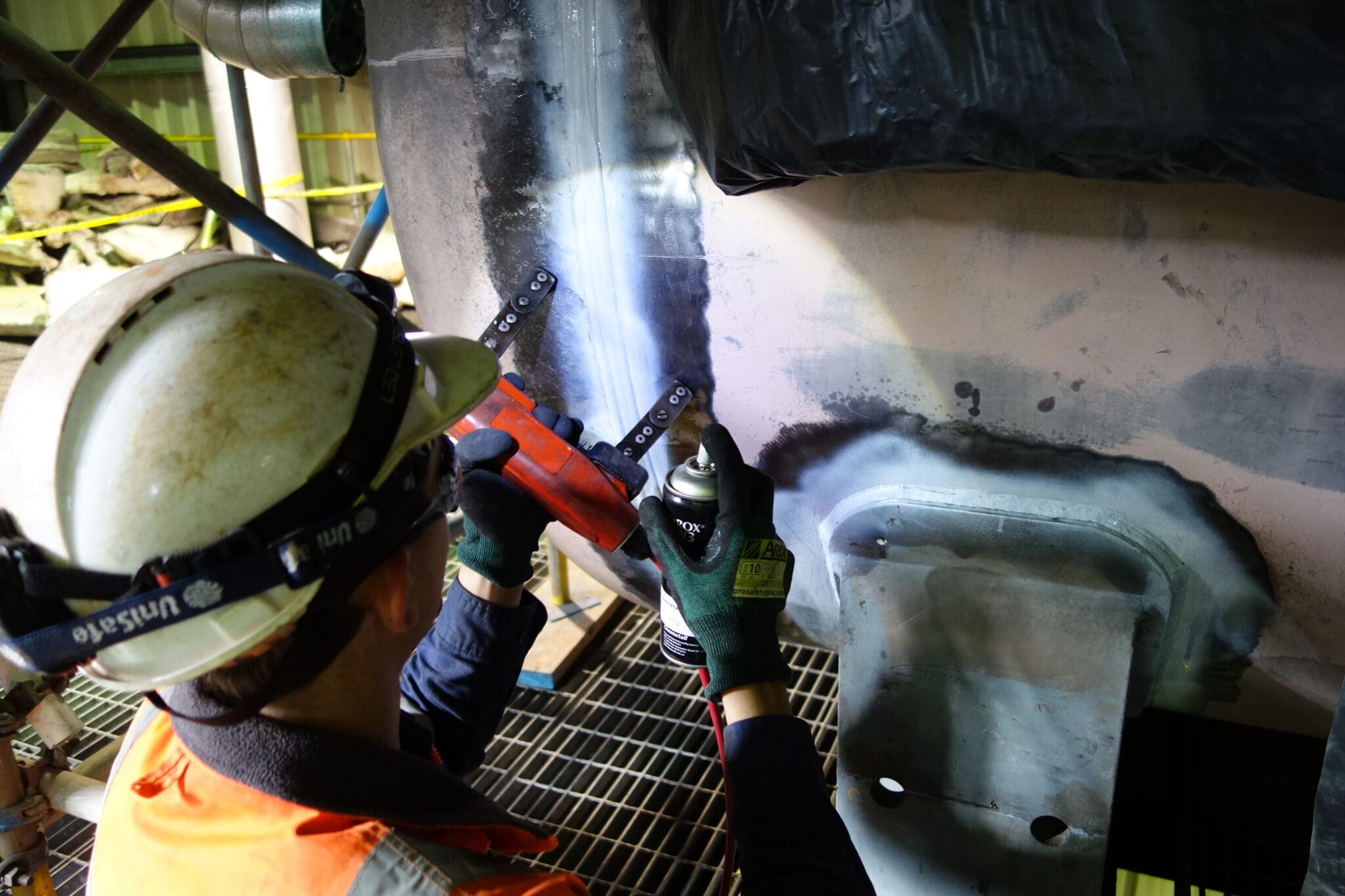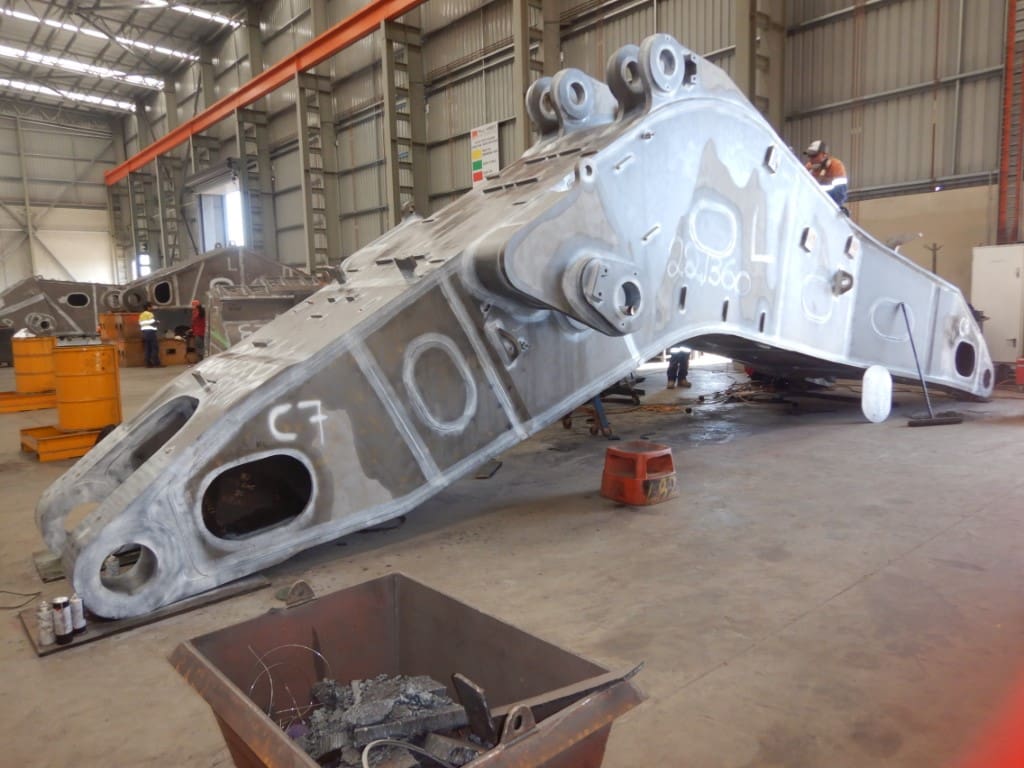Overview
Magnetic Particle Inspection (MPI) is a key NDT service offered by ARI. Used to detect surface and near-surface defects in ferromagnetic materials such as iron, nickel, cobalt, and some alloys. This testing method uses magnetic fields and fine magnetic particles to reveal cracks, seams, or inclusions in components without causing any damage.


How Magnetic Particle Inspection Works
First, the object being inspected is magnetised, which sets up magnetic lines of force running through the material. If there are any flaws, such as cracks, seams, or inclusions, they’ll interrupt this magnetic flow, causing the magnetic field to leak at that spot.
The magnetic particles are drawn to this leakage area. They bunch up, creating a visible pattern that outlines the exact shape of the discontinuity. Our team look at this pattern and evaluates it to understand if it’s a defect that needs fixing.
MPI is valuable because it’s a fast, straightforward way to check for surface and shallow subsurface flaws in magnetic materials.
Applications of Magnetic Particle Inspection
MPI is valuable in various industries, including mining, power generation, oil, gas, chemical, aerospace, automotive, and manufacturing, where it is essential to ensure the integrity of critical components without causing damage to the materials. It plays a crucial role in the quality assurance process, helping to prevent failures, accidents, and costly downtime.
By tailoring our MPI services to the specific requirements of each project, we provide actionable insights that help teams maintain safety, compliance, and operational efficiency.
To learn more about our range of NDT services, visit our Non-Destructive Testing Services page, or our Advanced NDT services for specialised inspections and techniques.
Advantages of Magnetic Particle Inspection
- Sensitivity to Small Defects: MPI can detect very fine cracks and other surface discontinuities that might be invisible to the naked eye.
- Immediate Results: The results of a magnetic particle inspection are visible as the test is taking place. There is no need for complex processing or extended waiting periods.
- Minimal Preparation: The surface needs only to be free from oil, dirt, scale, or other coatings that might keep the particles from moving freely.
- Versatility: It can be used to inspect various product forms including castings, forgings, and welds.
- Cost-Effectiveness: MPI is generally less expensive and more available than other forms of non-destructive examination.
Considersations
- Material Limitations: MPI is only applicable to ferromagnetic materials. Non-ferromagnetic materials, like aluminium, plastic, or certain stainless steels, cannot be tested using this method.
- Surface Accessibility: MPI can only detect discontinuities that are open to the surface or just below it. It cannot detect flaws that are deeper inside the material.
- Surface Preparation: The surface must be relatively clean and free of oil, grease, scale, or other coatings that could potentially prevent the magnetic particles from freely moving to the site of the flaw.
- Cleanup Required: After testing, the parts need to be demagnetised and cleaned to remove the magnetic particles, which can be an additional process step.
- Limited to Certain Shapes: Complex geometries can be challenging to inspect because uniform magnetisation may be difficult to achieve, leading to misleading indications or missed defects.
Other ARI Certified NDT Methods
ARI offers a full range of Certified NDT services. In addition to Radiographic Testing, our expert team provides a range of inspection techniques tailored to your specific needs. View our full range of services:
Why Choose ARI
Every inspection is customised to meet your project requirements. Our certified NDT technicians bring expertise and attention to detail, ensuring each inspection is thorough and reliable.
ARI offers a range of NDT Services, and with certified Magnetic Particle Inspection technicians in Perth, Adelaide, Melbourne, Port Hedland and Bunbury, we can determine if it is a suitable option for your NDT needs.
Contact Us
Send a message, or give us a call to discover how we can help.

